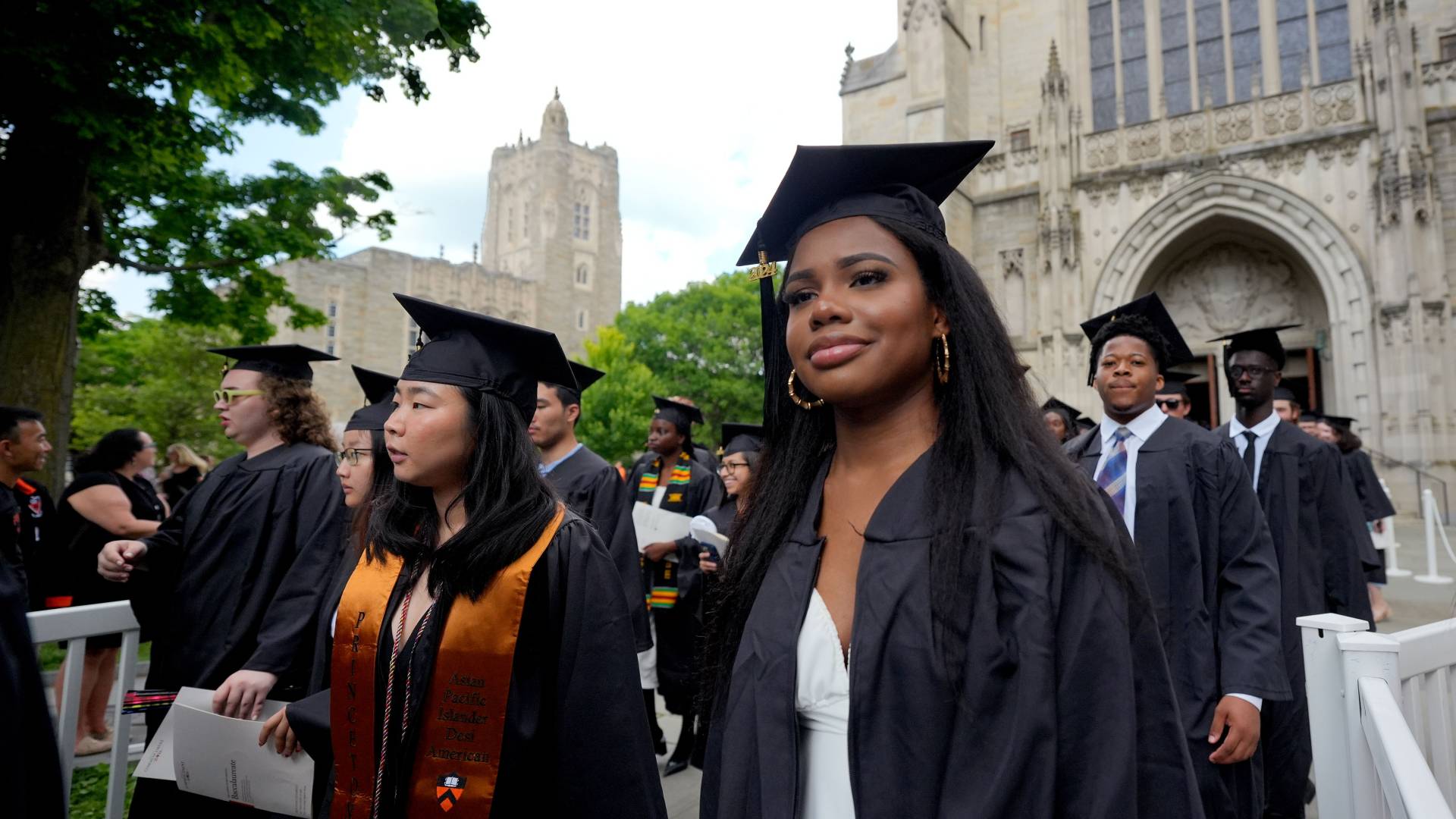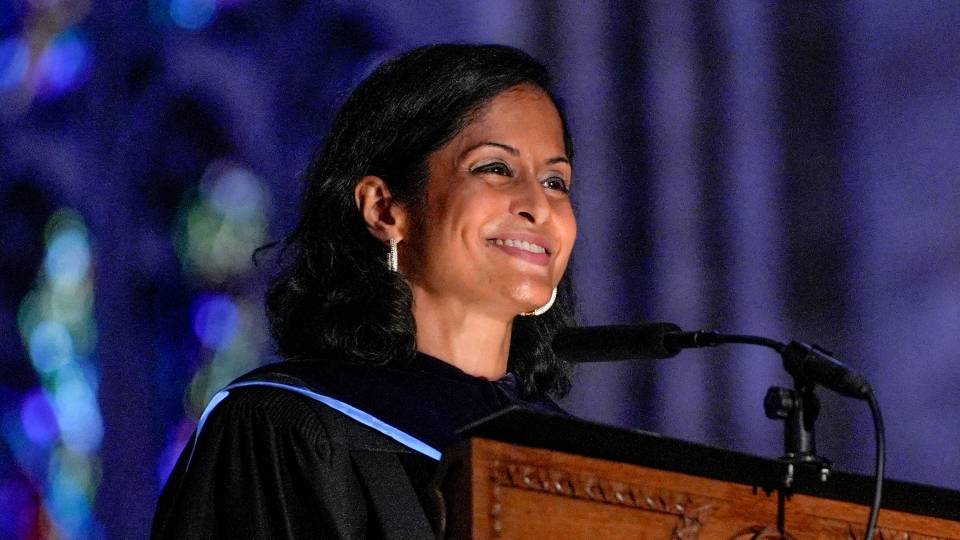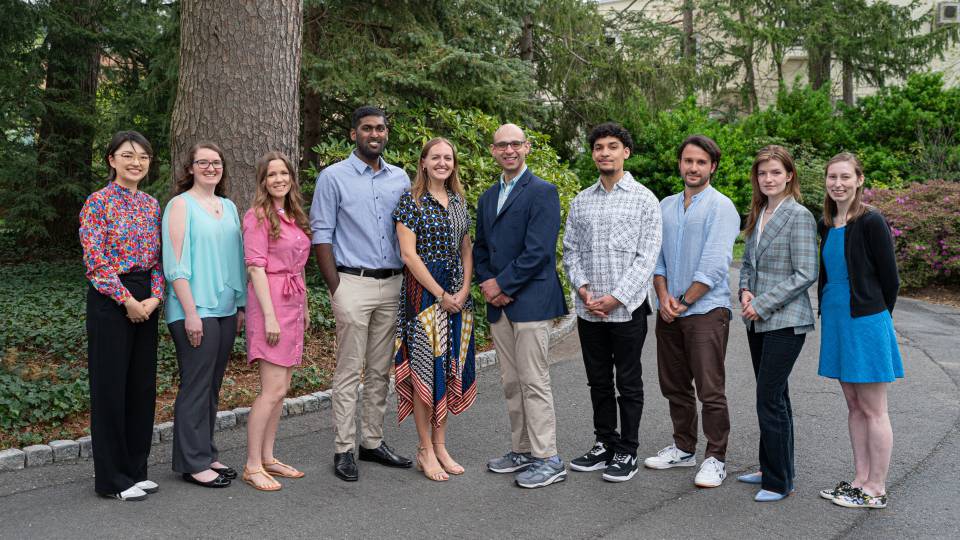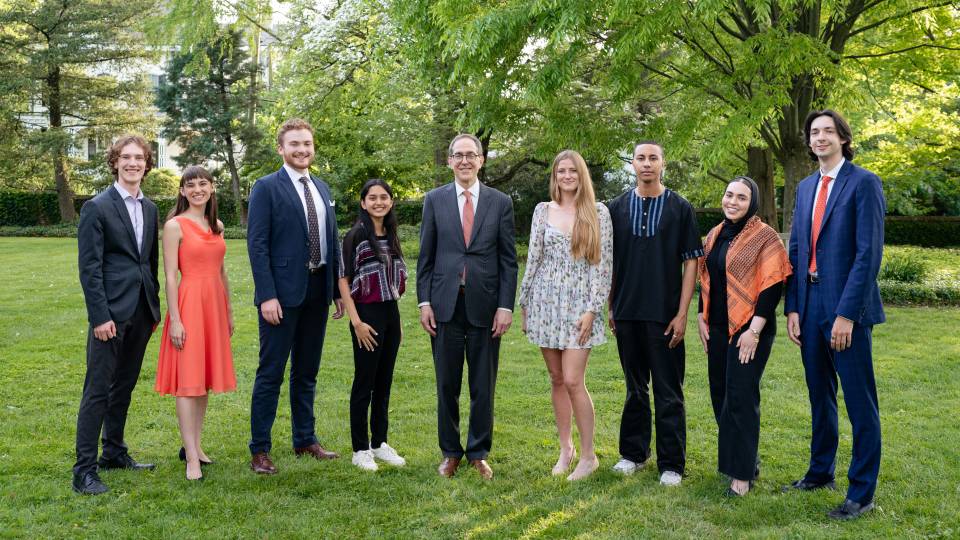Seniors process out of the University Chapel after the 2024 Baccalaureate service, an interfaith service that is one of Princeton’s oldest traditions.
Princeton’s Class of 2024 began three days of graduation events on Sunday, May 26, with the University’s 277th Baccalaureate, an interfaith service in the University Chapel that offers members of each graduating class a chance to reflect on their time on campus and think ahead to life after graduation.
The Baccalaureate speaker was federal Judge Nusrat J. Choudhury of the Eastern District of New York, who earned her master’s in public affairs from Princeton's School of Public and International Affairs (SPIA) in 2006. Last year, she became the first Muslim woman and first Bangladeshi American in U.S. history to serve as a federal judge. Choudhury's confirmation as a federal judge followed her long career as a civil rights attorney with the national American Civil Liberties Union and the ACLU of Illinois, where she handled complex constitutional cases on behalf of those who could not afford counsel.
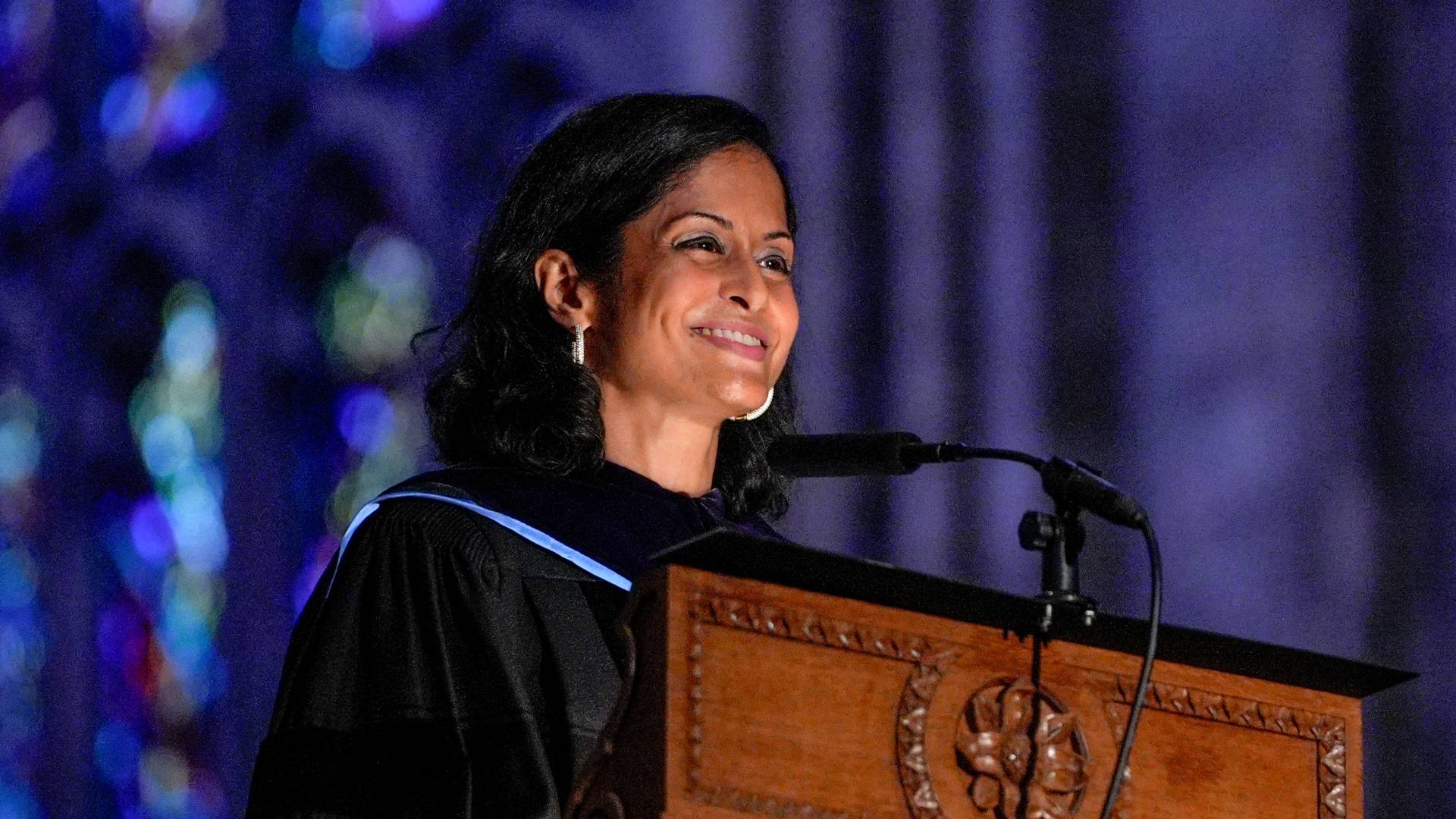
Judge Nusrat J. Choudhury of the Eastern District of New York addresses the Class of 2024. The 2006 graduate alum became the first Muslim woman and first Bangladeshi American to serve as a federal judge when she was confirmed to the bench in 2023.
Choudhury said that when fighting for civil rights and freedoms as an ACLU attorney, she often achieved the most significant results by bridging her clients' interests with those of the very government agencies they were suing.
She urged the Class of 2024 to “approach different opinions and perspectives not as a threat but as opportunities to learn. ... Acknowledge those differences and disagreements. Understand them. And then find the common ground.”
“I was able to reach across and speak with people with very different viewpoints ... to prevent constitutional violations from happening in the future,” she said. “Not only did those lawsuits change practices in the specific places where we sued, they led to statewide reforms that helped hundreds of thousands of people in Georgia, Mississippi, New York, South Carolina, Washington, Wisconsin.”
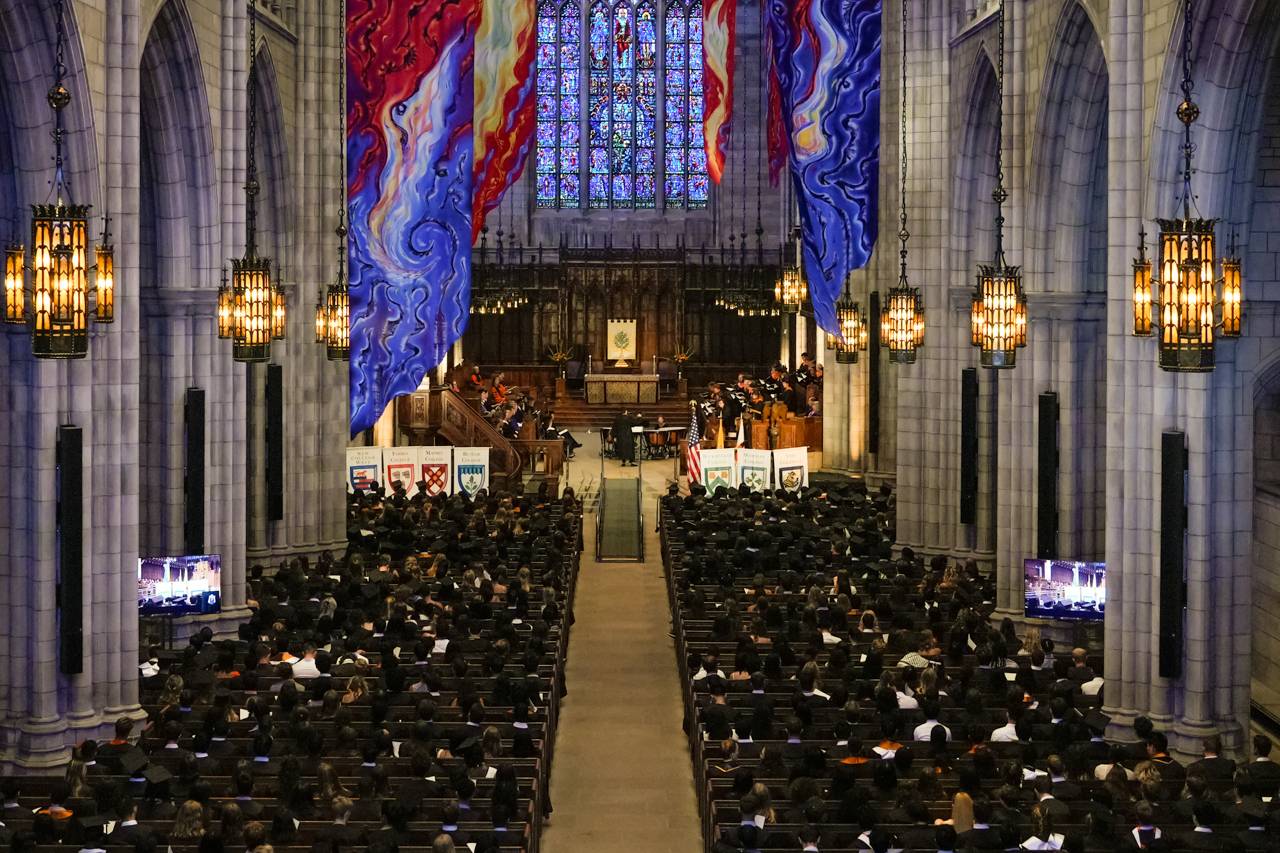
Graduating seniors gathered inside the University Chapel for the interfaith Baccalaureate, which includes music, blessings and readings from a range of traditions.
The vibrant interfaith Baccalaureate service offers graduates a chance to reflect on their time on campus and think ahead to life beyond FitzRandolph Gate. One of the University’s oldest traditions, it includes music, blessings and readings from a range of faith and philosophical traditions.
Graduating seniors gathered inside the University Chapel for the service as friends and families watched from screens outside on Cannon Green and at several other simulcast locations around the campus.
After an invocation from Dean of Religious Life and of the Chapel Alison Boden, Princeton University President Christopher L. Eisgruber greeted the seniors in their caps and gowns.
“All Princetonians take great pride in our shared mission to be 'in the nation’s service and the service of humanity,’” he said, quoting the University's informal motto. “Now, as you prepare to make the transition from students to alumni, I hope Princeton’s mission will continue to shape your lives.”
“At the heart of our community is the desire and responsibility to make the world a better place,” he noted. "As you enter your next stage of life as a Princetonian, I know you have left our campus better than when you arrived, and that you are poised to have the same impact on the world around us. For that, you have my deepest respect and gratitude.”
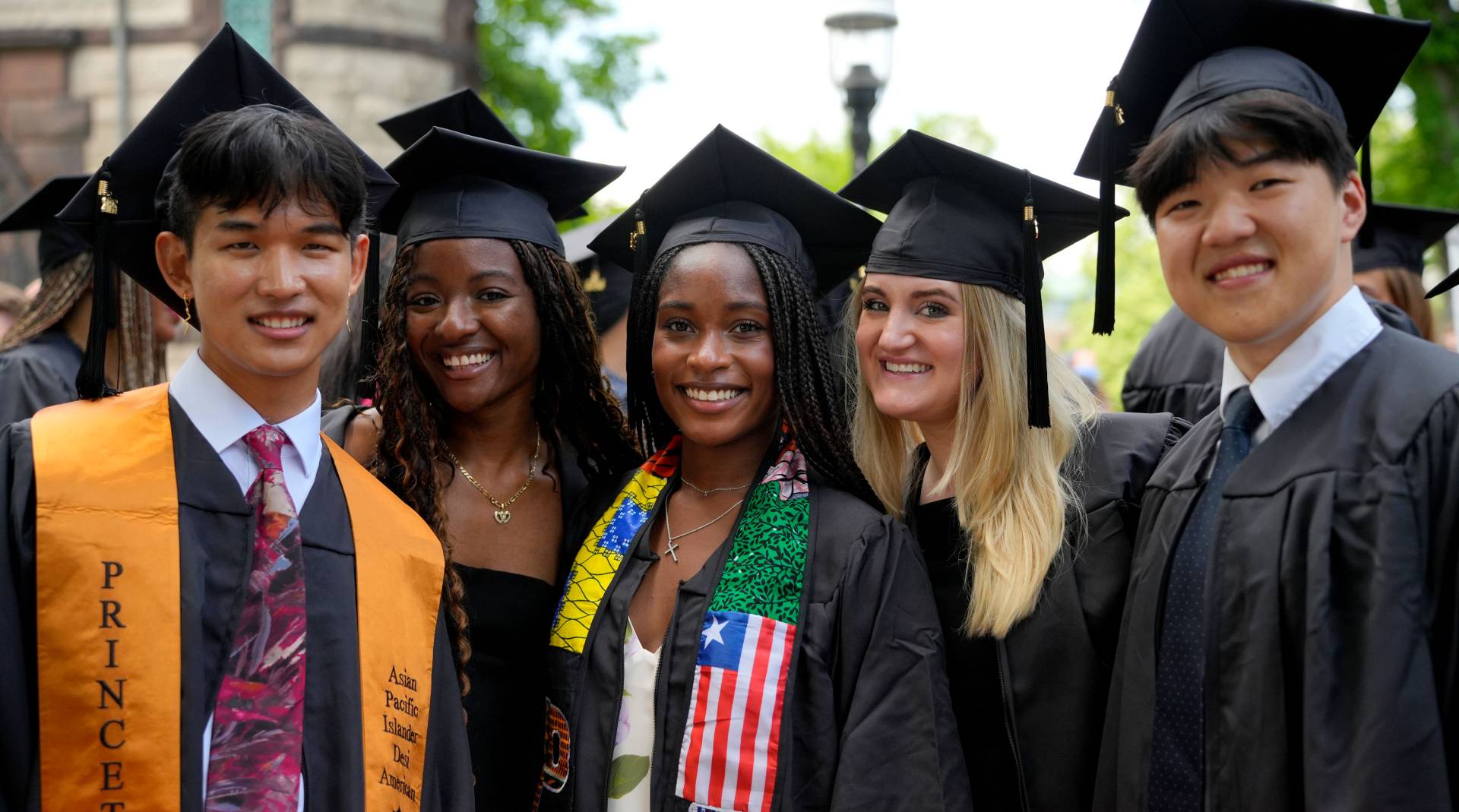
Class of 2024 officers gathered before the procession into the chapel. From left: Elliott Hyon, secretary; Sydney Johnson, president; Ive Jones, vice president; Lauren Fahlberg, social chair; and Eric Ahn, treasurer.
Four seniors selected for their outstanding contribution to religious life at Princeton then read in turn from their sacred texts.
Following the readings, Eisgruber introduced Choudhury by echoing fellow alumnus Anthony Romero, executive director of the ACLU, who has described Choudhury as “a trailblazing civil rights lawyer with a remarkable record of advancing equal justice for all in our nation.”
At the ACLU, Eisgruber said, “Judge Choudhury filed pathbreaking lawsuits to stop racial profiling and to change criminal justice procedures that disproportionately punished poor people. She fought to protect immigrants from dangerous detention conditions, and she obtained a court-ordered settlement that protected Muslim Americans against unlawful surveillance. Her team advanced free speech rights, voting rights, the rights of LGBTQ people, and a wide range of other fundamental freedoms.”
Opportunities and responsibilities
In her remarks, Choudhury shared her father's journey from what is now Bangladesh to his career as a doctor in Chicago, which made possible her own career as a civil rights attorney and now judge.
“My father modeled for me what it means to be the first in the community to do something,” she said. “And my parents together modeled for me that with the great opportunities of being in this country come even greater responsibilities: The responsibility to treat others with dignity and respect, to share knowledge, and to do what one can do to make the path a little easier for those that follow those of us who are the first.”
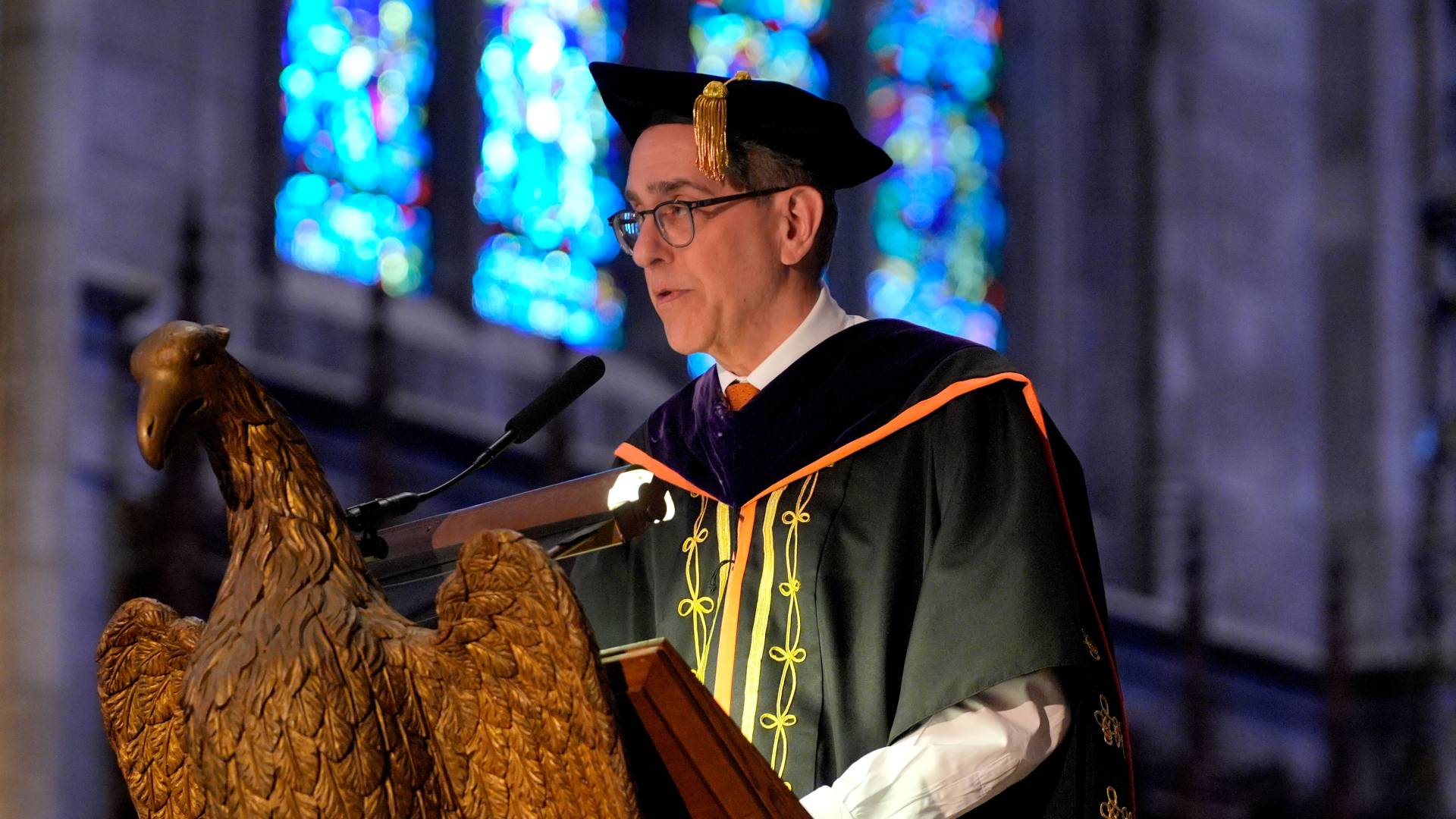
“As you enter your next stage of life as a Princetonian, I know you have left our campus better than when you arrived, and that you are poised to have the same impact on the world around us,” President Christopher L. Eisgruber told the assembled class. “For that, you have my deepest respect and gratitude.”
She talked about the responsibilities and joys that come with being the “first” to break through a barrier. “Since my confirmation as a judge, I have heard from hundreds of people — young people, people working in public interest law, American Muslims, Bangladeshi Americans, frankly Americans of all races, religions and backgrounds, and from people across the world,” she said. “They tell me that my confirmation shows them that they, too, can be seen for their own excellence, and can get the chance to work at the highest levels of their chosen profession. ... I am glad that each and every one of these people feel inspired, because they should. Because our country is inspiring.”
She also shared her hopes for the Class of 2024: “I wish you lives filled with meaningful and rewarding work that makes use of what are your great talents, and pays those talents forward to those around you. I hope that as you move forward in your chosen professions, you approach different opinions and perspectives not as a threat but as opportunities to learn. ...”
“And I urge you to take chances. Experiment, and understand that there is no single path forward in a meaningful life. There is just taking stock of where you are at each stage, to make sure you are in a role to allow you to be the change you want to see in the world, and to make sure that every day, you are doing work that you actually love to do.”
Associate Dean of Religious Life and of the Chapel Theresa Thames concluded the interfaith service with a benediction for the students.
“No courses, no teachers or guides could have prepared you for the unfolding of your lives during your time here at Princeton University," she said. "May you always remember and celebrate the unexpected ways that circumstance and time met you in the moment, and you showed up. You showed up on this campus amid the unknown while the world navigated loss and grief. ... Class of 2024, keep showing up.”
The Baccalaureate service is available for viewing online, along with the full text of Choudhury's address. End-of-the-year activities will continue with Class Day for seniors and the Hooding ceremony for advanced-degree candidates on Monday, May 27, and Commencement on Tuesday, May 28.
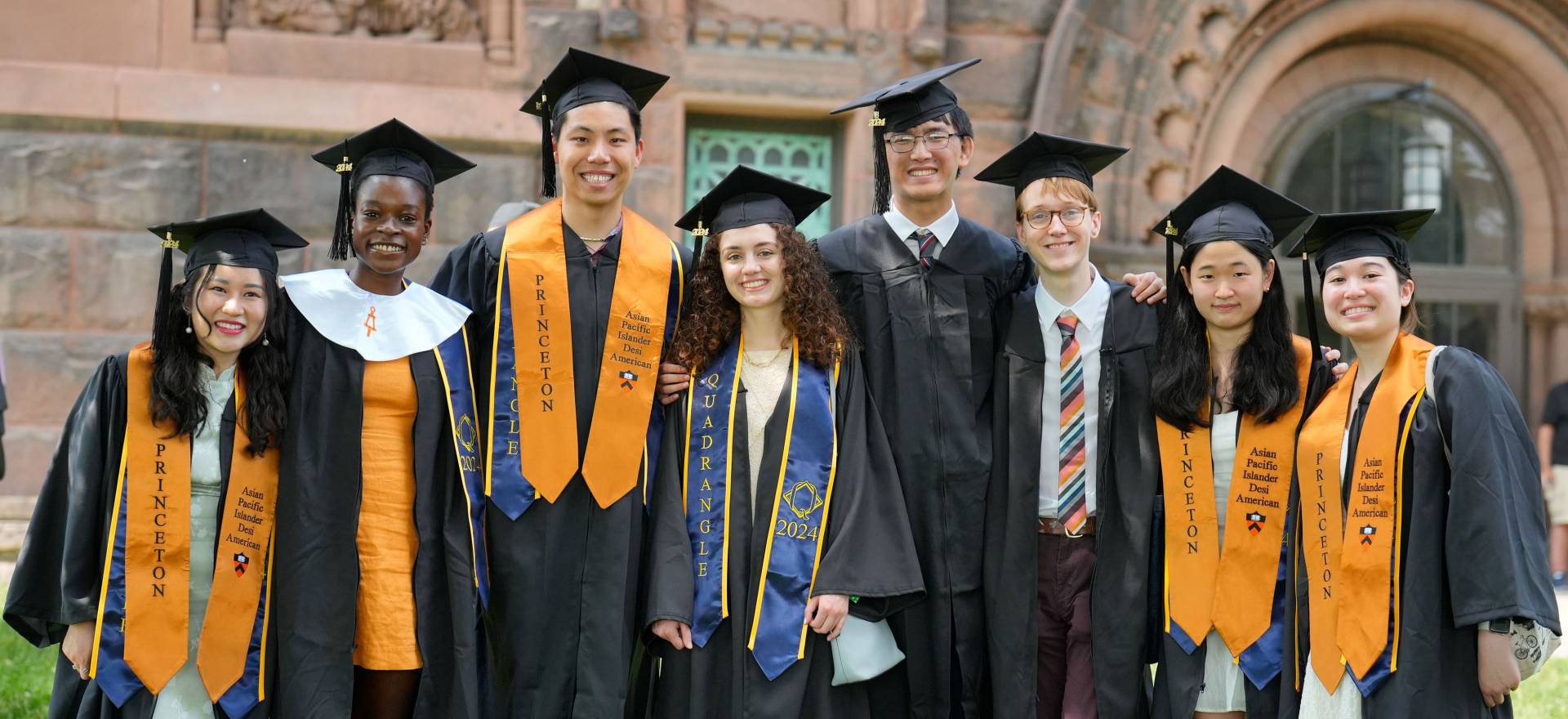
For many seniors, today was their first chance to wear their graduation regalia of caps and gowns. Others, who had participated in the pre-graduation events hosted by various campus affinity groups, sported colorful stoles distributed by their groups.
